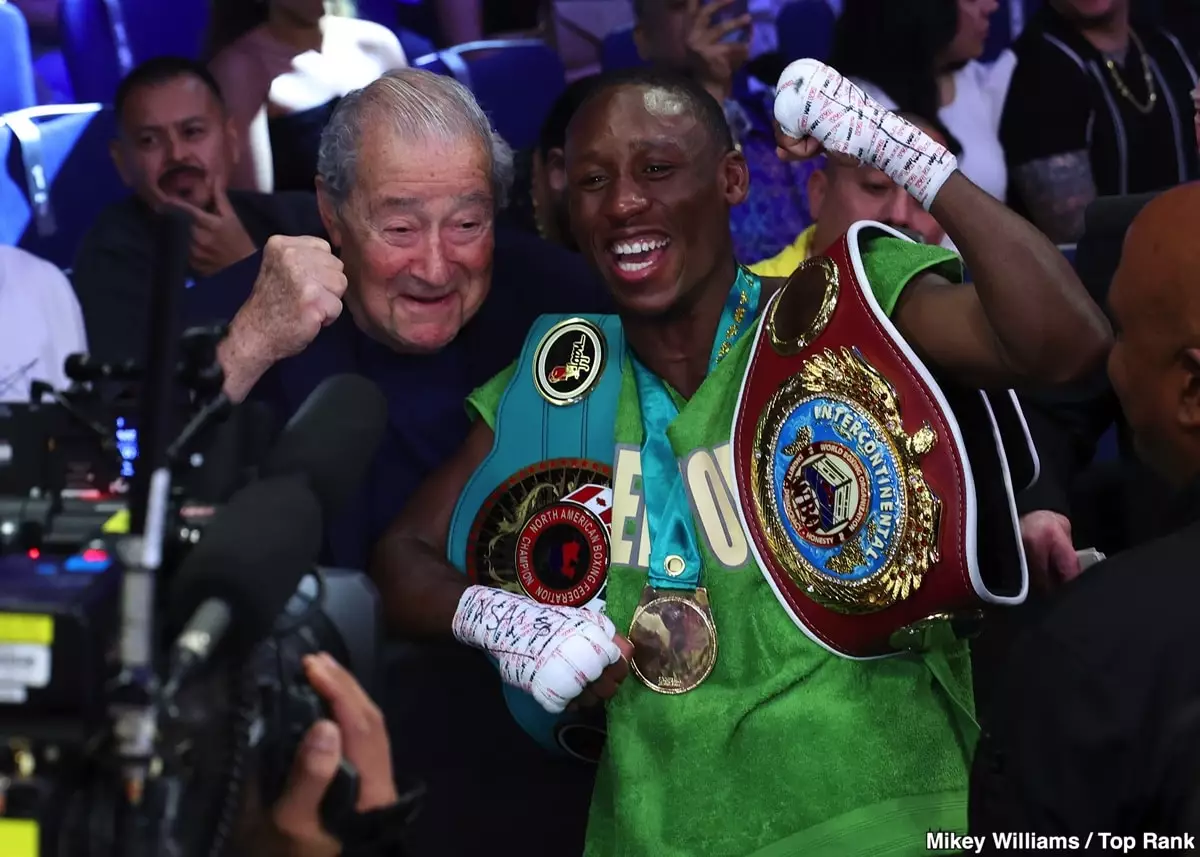Nick Ball’s reign as WBA featherweight champion, while technically impressive, reveals a troubling pattern of complacency and strategic apathy. Since capturing the title in 2024, his defenses have been unimpressive, consisting mainly of fighters well past their prime or in weight classes below him. Ronny Rios and TJ Doheny are hardly forebears of a legacy built on defending against elite contenders. Instead, Ball appears to be strategically dodging meaningful challenges, choosing to “milk” his title rather than embrace the grueling competition that true champions thrive on.
This pattern undermines the very essence of boxing’s integrity, which hinges on a willingness to face the toughest opponents to solidify a reputation. Ball’s defensive record doesn’t reflect a champion eager to leave a lasting mark—rather, it seems like an effort to preserve his status without risking it. Such behavior might be understandable for a casual titleholder, but in a sport renowned for its unpredictability and storytelling, it appears more as an abdication of opportunity than a demonstration of skill.
Why is Nick Ball Avoiding Reality?
The reluctance of Ball and his team to face Bruce Carrington reveals a deeper aversion to the kind of challenges that define legacies. Carrington, a rising star with an undefeated record (15-0, 9 KOs), publicly expressed eagerness to face Ball, positioning himself as the ideal boxer to carry the featherweight division forward. Yet, instead of reciprocating this ambition, Ball’s team dismisses legitimate offers, opting instead for less demanding bouts like against Sam Goodman—a fighter primarily campaigning at super bantamweight.
This choice underscores a calculated desire to hold onto the title without engaging in the hard-fought battles that could elevate his standing. It’s a classic case of avoiding the ‘heavy lifting’ that defines true champions. If the WBA were to enforce a mandatory fight, it’s quite plausible that Ball might vacate the belt altogether, revealing that his prize is more about possession than progression.
The Power Dynamics and the Fans’ Disillusionment
Boxing has always thrived on the narrative of champions stepping up and facing their toughest rivals, regardless of risk. Ball’s reluctance to engage with top contenders shirks this tradition and leaves fans craving authenticity and excitement unfulfilled. Carrington’s candid critique exposes the uncomfortable truth: Ball’s team is choosing political maneuvering over merit. If the champion truly viewed his belt as a symbol of greatness, he would embrace the challenge, not dodge it.
Furthermore, this situation highlights a disturbing trend in modern boxing—titles being treated as commodities rather than symbols of excellence. Instead of cultivating a competitive environment that sharpens skills and captivates audiences, some fighters prefer to prolong their reign with superficial defenses. This not only dilutes the significance of the belt but also diminishes the sport’s credibility.
The Future of Featherweight Glory
As the division waits for legitimate battles to unfold, the question remains: will Nick Ball ever genuinely chase greatness? Or is his reign destined to be remembered as a period of lost potential? Fighters like Carrington represent the new wave eager to restore honor through meaningful competition, but their efforts are hindered by champions hesitant to step into the fire. Boxing enthusiasts should not accept empty titles; instead, they must demand fighters who are willing to prove their courage inside the ring. Only then can the sport truly thrive anew.


Leave a Reply